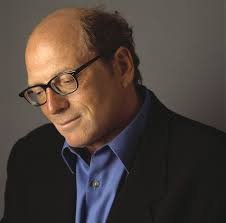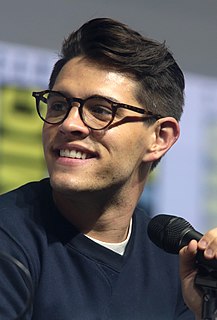A Quote by Oscar Hijuelos
When you write fiction, you can sort of invent more but also pack it with emotions that are very pertinent to you. Whereas with nonfiction, you have to be as factual as possible but also hopefully - also bring... emotional relevance to the piece.
Related Quotes
I learned to write from reading. I had no writing classes. It's part of my thinking as the writer-author, reading, but then I also want to bring this into my characters, who also read and think. There's that great quote from Virginia Woolf - it's very simple: "...books continue each other." I think when you're a writer, you're also, hopefully, a reader, and you're bringing those earlier works into your work.
With nonfiction, I had to learn how to be a clear communicator, but it was also a relief to be able to articulate some of my political ideas and beliefs. I also try to do that in my fiction, but I'm more interested in asking questions that lead to more questions, mysteries that lead to more mysteries, rather than immediate answers and solutions.
I write fiction longhand. That's not so much about rejecting technology as being unable to write fiction on a computer for some reason. I don't think I would write it on a typewriter either. I write in a very blind gut instinctive way. It just doesn't feel right. There's a physical connection. And then in nonfiction that's not the case at all. I can't even imagine writing nonfiction by hand.
As an actor, you are sort of only in charge of yourself. All you can really control is your performance. You don't know what they're going to do with it in the editing room, what they're going to cut out, which take they're going to use. You know, your control is very limited. As a director, it's ultimately your piece. You have a lot more responsibility, but you also have a lot more creative control. It's scary, but also liberating in a way.
I remember reading an interview with a writer who said that in nonfiction if you have one lie it sort of messes it up. But in fiction the real details give you so much more credibility, because people do so much research just to write fiction. In fiction you're trying to recreate something lifelike.
We also have a piece about the Mayflower, but it's just a very different, very gritty, very character-driven version of why those people were on that boat and what the experience was like for them, emotionally, physically and spiritually, and also the Native Americans and what the state of Native American society was at that time.
Making this movie as a period piece about a period that was very recent in people's minds. I was in Taiwan [during the 1970s], so I hope I did all right. Otherwise, it could be the biggest embarrassment of my life. Also, the story is not linear, it's patchy, like a cubist painting, and there is always the possibility it will not hold together, it will fall apart. The tone is part satire, part serious drama, part tragedy, all mixed together, and it has to hit an emotional core. That's also very scary.
This fact was something I also learned from this first novel that I needed personal experience to invent, to fantasize, to create fiction, but at the same time I needed some distance, some perspective on this experience in order to feel free enough to manipulate it and to transform it into fiction. If the experience is very close, I feel inhibited. I have never been able to write fiction about something that has happened to me recently. If the closeness of the real reality, of living reality, is to have a persuasive effect on my imagination, I need a distance, a distance in time and in space.
He who acts under an emotional impulse also acts. What distinguishes an emotional action from other actions is the valuation of input and output. Emotions disarrange valuations. Inflamed with passion, man sees the goal as more desirable and the price he has to pay for it as less burdensome than he would in cool deliberation.






































